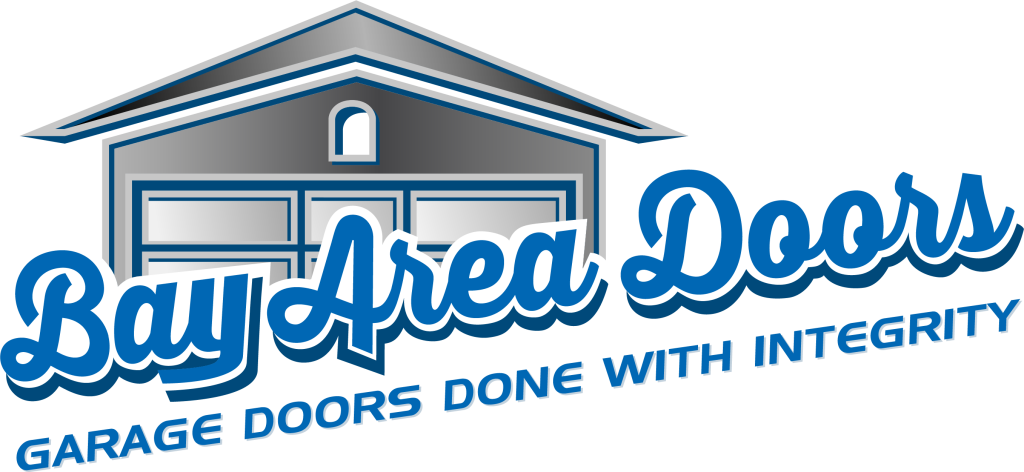To keep your garage door springs in good shape longer, they need regular checks, gentle use, and the right care. Springs absorb a great deal of strain and motion every time you operate the door. Dust, rust, and uneven tension can wear them out. Regularly lubricate the springs with a good-quality garage door spring oil to prevent them from drying out. You do get springs that last longer when you catch those tiny little cracks or separations early and repair them. Not yanking or pushing the door by hand keeps the springs from extending too much. You have more tips in the following sections — these assist you in identifying issues quickly and understanding when it’s safest to seek assistance from a professional.
Key Takeaways
- Simply keeping your garage door springs clean and lubricated can make them last longer and function more smoothly.
- Periodically check your garage door’s balance and alignment, adjusting as needed, to avoid straining springs and the opener unnecessarily.
- Keep count of your garage door usage and spring cycles so you can schedule maintenance to prevent surprise failures.
- Pick the right springs for your door’s weight and usage, and upgrade to high-cycle or corrosion-resistant materials if desired.
- Keep an eye out for early warning signs such as a loud screeching noise, uneven movement, gaps in springs, or slow operation, nd you’ll be able to fix problems before they escalate.
- Call the pros for installation, big fixes,,s or if you catch something serious, delivering safe, trusted garage door operation to your house.

The Unsung Hero: Springs
Garage door torsion springs are the unsung heroes, shouldering the heavy lifting and silently making your garage door open and close effortlessly. These torsion springs store energy, allowing your door to go up and down with minimal force. By practicing regular garage spring maintenance, you can avoid expensive repairs and maintain a secure and dependable garage. Understanding your spring type — and how they operate — enables you to make wise maintenance and replacement decisions.
Torsion Vs. Extension
|
Feature |
Torsion Springs |
Extension Springs |
|
Mechanism |
Twist to store energy |
Stretch and contract |
|
Best for |
Heavier or larger doors |
Lighter or single-panel doors |
|
Mounting Location |
Above the door, mounted on the header |
Alongside horizontal tracks |
|
Torque/Weight Match |
Holds more torque, suits big loads |
Suits smaller, lighter doors |
|
Installation |
Needs a precise fit and tools |
Easier to fit, less complex |
Extension springs are ideal for lightweight doors, such as single-car garages, while torsion springs twist to store energy and are essential for wide or heavy garage doors. Proper garage door torsion spring maintenance ensures durability and prevents costly repairs, so you don’t have to worry about potential damage.
The Balancing Act
Test your garage door balance once a month. If it’s hard to lift or drops quickly, it’s likely due to unbalanced garage door issues. This can fatigue your garage door torsion springs and overwork your opener. Ensuring proper tension helps spread the load and prevents early wear on springs. Listen for jolty motions or creaks—this indicates that the door isn’t sliding properly. A door in balance keeps your springs operating at their optimum.
The Cycle Count
A full cycle consists of opening and closing your door. Most garage door torsion springs are designed to endure somewhere between 10,000 and 20,000 of these cycles, which could be approximately four years of use, if you open your door once per day. Log how often you open and close the garage door system. If you reach that cycle count, change springs before snapping to avoid costly repairs. Think ahead so you aren’t locked out or stranded waiting for service.
Maintenance Habits
Oil garage door torsion springs with garage lube or silicone spray every three months to ensure they maintain proper tension. Monthly checks and regular oiling can prevent costly repairs, leading to smoother moves and extending the cycle life of your springs.
How To Prolong Spring Lifespan
Garage door torsion springs function under stress, so small maintenance tips can help significantly. With a little garage door maintenance, you minimize the chances of sudden failure and extend the lifespan of your springs.
- Apply quality silicone lubricants to springs, hinges, and rollers
- Inspect springs monthly for rust, cracks, or wear
- Adjust tension and alignment as needed
- Keep the garage area dry and clean
- Install a weather strip to limit moisture
- Schedule an annual professional tune-up
1. Routine Lubrication
Lubrication prevents metal parts from grinding, which is essential for a long spring life. Be sure to use a silicone-based lubricant, as it protects against rust and is compatible with the metal in most garage door springs. Stay away from oil-based sprays. They collect grime and cause springs to wear prematurely. Lubricate everything that moves, not just springs–hinges and rollers on doors need to be lubricated as well.
Lubricate every 3 or 4 months, or following severe weather changes. A quick spray coats each spring. If you live in a wet or cold area, add a door sweep to keep moisture out. This assists in preventing corrosion before it starts.
2. Visual Inspection
Examine your springs semiannually. If you can, check monthly to catch damage early. Inspect for rust, cracks, or fraying. These are indications that springs require maintenance or even substitution. Springs should sit straight and be mounted tightly. Any movement in their placement can cause major issues or potential hazards.
Record your observations. A straightforward log lets you monitor changes and schedule maintenance. Take a flashlight to the garage if it’s dark, and be sure to inspect the mounting brackets and cables.
3. Balance Test
The balance test is simple but essential. Raise your garage door by hand halfway. If it remains, the springs are compensated. If the door falls or pops up, the tension is out. Tension adjustment avoids unnecessary stress and prolongs the opener’s lifespan.
Perform this test every few months. It’s safer to check frequently, particularly if you use the door every day. You can enlist the other members of the household so everyone is aware of what to watch for, turning upkeep into a group chore.
4. Door Alignment
An out-of-track door is hard on springs — and hard on spring life. Observe the door in motion—does it shake or stick? Examine the tracks. Small bits of gunk or dirt can skew alignment. Adjust the track brackets as necessary.
Maintain tracks with an easy wash every 6 months. A quick check after storms or heavy use ensures you catch problems early.
Spring care is simpler if you get small problems first.
5. Professional Tune-up
Annual professional tune-ups keep your system secure and efficient. Technicians identify spring wear you may overlook. They inspect mounting, tension, and all safety devices.
Maintain logs from every visit. This simplifies tracking what work’s been done and when to schedule the next check.
What Shortens Spring Life
Garage door springs, particularly torsion springs, have a predetermined lifespan that can be shortened by various factors. Understanding these elements aids in ensuring proper garage door maintenance for longevity and safety.
- Overuse accelerates spring life. Every open-close is a cycle, and most springs are rated for a certain number of cycles. Operating the garage door more than necessary can quickly consume its cycle rating.
- Bad installation means springs that are misaligned or stressed. If the springs are not adjusted properly, additional components can be worn out as well.
- Inappropriate spring selection—installing springs that aren’t rated for your garage door’s weight or type—will lead to premature failure.
- Not oiling springs increases friction. The additional friction causes accelerated wear and potential fracture.
- Allowing rust, dirt, or grime to accumulate reduces longevity. Springs that have been exposed to moisture or have not been cleaned can seize up or corrode.
- Putting off replacing old or damaged springs places an added strain on the remainder of the door assembly, jeopardizing expensive additional repairs.
- Shortens spring life by changing the spring’s inner diameter.
- Springs that have a cycle life rating below what you require won’t make it.
Climate Impact
Extreme temperatures make metal springs shrink or stretch. This fatigues the metal and can affect spring performance. Springs in cold weather could become brittle, and in hot areas, lose tension. Humid or damp weather can activate rust on springs that are not well-protected. Rust corrodes the metal, causing springs to give out early.
In places with real seasons, it’s clever to use climate-resistant springs. Stainless steel or powder-coated springs fare better in wet or salty air. When you insulate your garage, it helps keep temperatures more even, so the springs are subject to less strain from heat or cold fluctuations.
Usage Frequency
How many times do you pull up and down your garage door? A lot. Every time you use it, it abrades the spring a bit. If you or your family open the door numerous times a day, that accumulates quickly. Wherever possible, attempt to conserve the door from opening and closing to when it’s needed, not for quick jaunts or because you’re accustomed to doing so.
A clever opener or utilization timer can regulate the frequency of door movement. Monitoring usage enables you to anticipate when service or replacement of the springs is required.
Improper Installation
Springs must be installed perfectly to ensure the durability of your garage door system. If the tension is off or the garage door torsion spring is misaligned, it can lead to premature wear or even breakage. Attempting to do it yourself without the proper equipment can be dangerous, making it crucial to rely on professional garage door spring replacement to adhere to the manufacturer’s guidelines.
Door Weight
The weight of the garage door determines what type of garage door torsion spring you require. If your spring is too weak for the door, it’ll break quickly, leading to costly repairs. If too strong, the door does not open smoothly. Keep an eye out for unbalanced garage doors that sag or are difficult to open — this could indicate the spring is the wrong fit. If in doubt, consult a garage door specialist.

Early Warning Signs
Identifying early warning signs ensures that you maintain your garage door torsion springs in optimal condition, preventing costly repairs and extending their lifespan.
- Erratic movement or jerky door operation
- Visible gaps in the spring coils or door alignment
- Slower door movement than usual
- Unusual noises like popping, creaking, or rattling
- The door feels heavy, unbalanced, or tilts to one side
- Rust, corrosion, or clear signs of wear on springs
- The door opens or shuts too fast or slams down
Unusual Noises
Popping or grinding noises when you operate your garage door can be an early warning sign that the springs are beginning to go. Springs under stress will frequently creak or bang, particularly if they’re worn or rusted. If you hear rattling, it may not be the spring as much as it is loose brackets or misaligned parts, either of which can cause bigger problems if neglected.
It’s smart to be proactive when these noises appear—ignoring them can lead to more harm, sometimes to the door tracks or opener. You could take notes of what you hear and when. A plain notebook or notes on your phone can assist you in providing valuable information to a service pro should you ever require repairs.
Erratic Movement
A door that creaks or jerks is a time-honored tip-off. Springs that lose their tension or break can’t lift the door evenly, so it may tilt or stick halfway. Put your hand under the door to test its balance—unplug the opener and hoist it up by hand. If it’s difficult to open or doesn’t seem to bounce back, your springs could be worn out.
If you hear your door slamming shut or flying open, that’s another indication that the springs aren’t working properly. Recording these shifts, even with a rapid video, can assist a repair specialist in zeroing in on the trouble.
Visible Gaps
Check your springs for gaps, particularly those that appear a few centimeters wide. This typically indicates the spring has broken or is over-extended. Occasionally, you may notice gaps between the coils- this indicates weak or worn springs. Rust or corrosion is yet another early warning, as it can cause a snap.
If you notice these signs, don’t continue using the door. Swap out the springs or send out an SOS. Neglecting gaps can jeopardize the abrupt collapse and even cause damage.
Slow Operation
If the garage door moves slowly, sticks, or hesitates, it may be a sign that the springs are losing tension or need oil. A silicone-based lubricant applied every three months or so will help reduce friction and prolong spring life. If you tweak the tension and it’s still slow, have a pro check it out.
If slow still lingers, don’t stall—repairing it early maintains your gateway secure and functioning well.
The Upgrade Path
To make your garage door springs longer, consider upgrading to higher-quality components like stainless steel springs and implementing regular garage spring maintenance. These enhancements will not only increase efficiency but also reduce costs in the long term, ensuring that your garage door system operates seamlessly and effectively.
- Opt for springs that are crafted from specialty metals, such as galvanized or stainless steel.
- Watch out for high-cycle or heavy-duty springs that go the distance.
- Research protective coatings to add another layer of defense.
- See if the upgrade spring will fit your rig.
- Consider how modifying spring size or wire gauge might impact the rest of your garage door.
- Consult an expert if you’re uncertain about compatibility or performance.
Material Choice
It’s quality that counts when selecting springs. Low-end springs degrade rapidly and snap without notice. Galvanized steel springs are a great option. They fight off rust and help your door survive the humid or wet seasons. Stainless steel is corrosion-resistant, but it’s more expensive.
Test springs for tensile strength before purchase. If your door is heavy, stronger springs will perform better and last longer. A larger wire gauge means longer life, but you’ll have to verify that your garage door can support the increased dimension. Every once in a while, a bigger spring requires a new cone or other pieces, so be sure to measure everything before purchasing. Making the right material and size choice now can reduce your expenses and headaches down the line.
High-Cycle Springs
|
Feature |
Standard Springs |
High-Cycle Springs |
|
Expected Lifespan |
10,000 cycles |
25,000+ cycles |
|
Wire Gauge |
Standard |
Larger |
|
Price |
Lower |
Higher |
|
Maintenance |
More frequent |
Less frequent |
|
Performance |
Good for low use |
Best for daily use |
High-cycle garage door torsion springs have more openings and closings, making them ideal for users who frequently operate their garage doors. While these springs may cost more initially, they save you from costly repairs over time. Not all torsion springs are alike, so it’s essential to consult a spring specialist to ensure the selected spring fits your garage door system.
Protective Coatings
Certain coatings shield springs from rust and weather. Zinc plating and powder coating are two popular variants. Use coatings when you swap or upgrade springs for optimal performance.
You can reapply coatings during your routine maintenance. Consult a technician about the best choices for your springs and local climate.
Sizing And Fit
Switching to a longer-life spring can translate to a larger diameter and wire gauge. Just make sure the new spring will fit your cones and mounts!
The quantity of turns is important. Use the right size, and you could prematurely wear out your opener or springs.
When To Call A Professional
Knowing when to take a step back and seek expert assistance can spare you more than time; it can also keep you safe and extend your garage door’s lifespan. It’s tempting to DIY garage door spring repair, but these components, particularly the garage door torsion springs, are super tense. If you attempt to fix or replace them without professional training, you can cause yourself serious injury or more extensive harm to the door. The door’s weight and the springs’ tension are simple to underappreciate. While you may have tackled some minor repairs in the past, dealing with a broken spring is a job for the pros.
If you spot broken springs, hear loud snaps, or notice the door moves unevenly or stops working, call a professional immediately. Don’t manhandle the door. These symptoms indicate an issue that can deteriorate rapidly. For instance, does the door feel heavy, won’t stay open, or do you see gaps in the spring coils? If yes, it’s time that the garage door torsion spring needs attention, as it may be worn or snapped. With active families or businesses, springs burn out more quickly because of more cycles—sometimes falling to a five to seven-year lifespan, versus the normal seven to nine years with average use. Heavy-duty torsion springs can last more than 20,000 cycles, but even these do require regular garage spring maintenance as they get older.
It’s a smart idea to schedule an inspection ahead of harsh weather. Hot summers or cold winters can make old or worn springs give out without warning. Balance issues, such as the door drifting or not staying in place, are obvious indicators of a need for spring replacement. Neglecting these perils can cause unexpected failure or costlier fixes down the road.
Professionals have the proper equipment and experience to get the job done safely. They look for latent damage and ensure all components of the garage door system are functioning as they should. Be sure to have contact information for a reputable garage door service on hand. In emergencies, prompt assistance equates to less downtime and reduced exposure for you.
Conclusion
Garage door springs toil incessantly. With just a little love, you help them last longer and save yourself from emergency repairs. Springs cleaned once in a while, keep ’em oiled, and look ’em and listen ’em over. Small indicators such as squeaks or gaps demand a prompt inspection — not a delay. Old springs or excessive rust, then a swap makes more sense than a patch-up. Trust a pro for major repairs or replacements, but your home steps matter most for regular maintenance. A smooth garage door goes a long way toward less stress on you and your wallet. Got questions or tips of your own to share? Leave your comments below and lend a hand to your fellow spring-keepers as well.
Frequently Asked Questions
1. How Often Should You Inspect Your Garage Door Springs?
You should check your garage door torsion springs at least semi-annually. Frequent inspections assist you in detecting wear or damage early and avoiding costly repairs.
2. What Daily Habits Help Garage Door Springs Last Longer?
Open and close your garage door softly to avoid unnecessary wear on the garage door torsion springs. Keeping tracks and springs clean and free of debris minimizes stress on the garage door system.
3. Can You Lubricate Garage Door Springs Yourself?
Yes, you can lube your garage door torsion springs yourself. Lubricate with a silicone-based lubricant every 3 to 4 months to minimize friction and ensure the springs move smoothly.
4. What Are Common Signs That Your Garage Door Springs Need Attention?
Check for separation in the garage door torsion springs, banging noises, a twisted door, or an unbalanced garage door. These are premonitions that your springs might need fixing or replacing.
5. What Factors Can Shorten The Life Of Garage Door Springs?
Regular use, extreme temperatures, and insufficient maintenance on garage door torsion springs will shorten their life, leading to costly repairs.
6. Is It Safe To Repair Garage Door Springs Yourself?
No, garage door torsion spring repair is hazardous due to high tension. Always contact a pro for professional garage door spring replacement or repairs.
7. When Should You Consider Upgrading Your Garage Door Springs?
Boost your garage door torsion springs if your door is heavy, frequently used, or you desire enhanced safety and longevity, as modern springs store energy and work more effectively.
Extend The Life Of Your Garage Door Springs—Book Your Maintenance Today!
Don’t wait until your garage door stops working or your springs snap without warning. Routine maintenance is the key to extending the life of your garage door springs and keeping your entire system running safely and smoothly. At Bay Area Garage Doors, we specialize in preventative care that saves you money in the long run—catching early signs of wear, rust, imbalance, or stress before they become costly breakdowns. Whether you’re dealing with unpredictable weather, daily high-use cycles, or simply want peace of mind, our team is ready to help. Extend spring life with our maintenance service—book your professional garage door spring tune-up now.
Disclaimer:
The information provided in this article is for educational and informational purposes only. Garage door spring replacement involves high-tension components that can cause serious injury or property damage if handled improperly. Always use appropriate safety gear and tools, and follow the manufacturer’s instructions precisely. Bay Area Doors recommends consulting or hiring a licensed professional for any garage door spring repair or replacement. By using this information, you agree to assume all risks associated with DIY repairs and hold Bay Area Doors harmless from any liability or damages resulting from its use.


